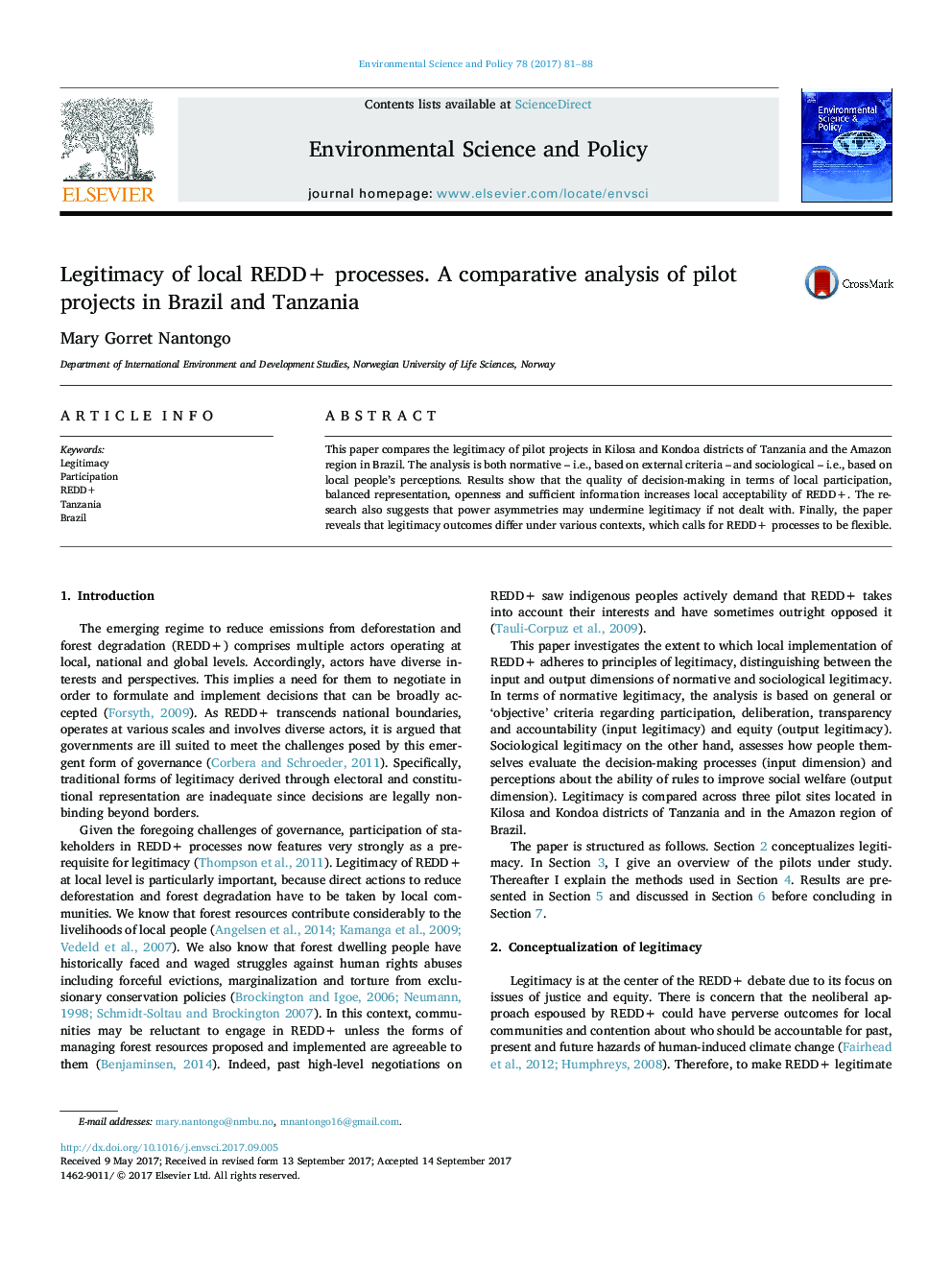| Article ID | Journal | Published Year | Pages | File Type |
|---|---|---|---|---|
| 5115683 | Environmental Science & Policy | 2017 | 8 Pages |
Abstract
This paper compares the legitimacy of pilot projects in Kilosa and Kondoa districts of Tanzania and the Amazon region in Brazil. The analysis is both normative - i.e., based on external criteria - and sociological - i.e., based on local people's perceptions. Results show that the quality of decision-making in terms of local participation, balanced representation, openness and sufficient information increases local acceptability of REDD+. The research also suggests that power asymmetries may undermine legitimacy if not dealt with. Finally, the paper reveals that legitimacy outcomes differ under various contexts, which calls for REDD+ processes to be flexible.
Related Topics
Physical Sciences and Engineering
Energy
Renewable Energy, Sustainability and the Environment
Authors
Mary Gorret Nantongo,
